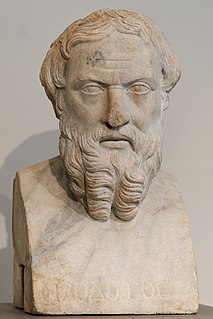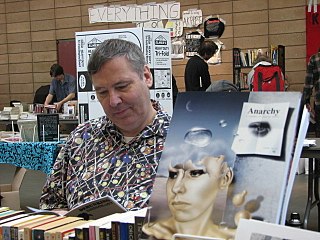Robert Graham (born 1958) is a Canadian anarchist historian and writer. [1] He is the editor of Anarchism: A Documentary History of Libertarian Ideas , a three-volume collection of anarchist writings from ancient China to the present day. Volume One, subtitled "From Anarchy to Anarchism", covers the period from 300CE to 1939. [2] Volume 2, subtitled "The Emergence of the New Anarchism," covers the period from 1939, when the Spanish anarchists were defeated and the Second World War began, to 1977, by which time the world had witnessed a remarkable resurgence in anarchist ideas and movements. Volume 3, subtitled "The New Anarchism," covers the period from 1974 to 2012, showcasing the different currents in anarchist theory and practice which have developed since the 1970s. The anthology is published by Black Rose Books. [3] Each selection is introduced by Robert Graham, placing each author and selection in their historical and ideological context. The focus of the anthology is on the origins and development of anarchist ideas. It is not a documentary history of the world's various anarchist movements, although there is a wealth of material from many different areas, including not only Europe and North America, but also Latin America, China, Japan, Korea, India, Australia, Africa and the Middle East.[ citation needed ]

A historian is a person who studies and writes about the past, and is regarded as an authority on it. Historians are concerned with the continuous, methodical narrative and research of past events as relating to the human race; as well as the study of all history in time. If the individual is concerned with events preceding written history, the individual is a historian of prehistory. Some historians are recognized by publications or training and experience. "Historian" became a professional occupation in the late nineteenth century as research universities were emerging in Germany and elsewhere.
Anarchism: A Documentary History of Libertarian Ideas is a three-volume anthology of anarchist writings edited by historian Robert Graham. The anthology is published by Black Rose Books. Each selection is introduced by Graham, placing each author and selection in their historical and ideological context. The focus of the anthology is on the origins and development of anarchist ideas; it is not a documentary history of the world's anarchist movements, although the selections are geographically diverse.
Contents
Graham is also the author of many articles on the history of anarchist ideas and contemporary anarchist theory. He was an editor and contributor to the North American anarchist newsjournal, Open Road, for which he interviewed both Murray Bookchin and Noam Chomsky (the latter interview, "The Manufacture of Consent," has been reprinted in Carlos Otero's collection of Chomsky interviews, Language and Politics). Drawing on the work of the feminist political theorist, Carole Pateman, Graham has argued in favour of a conception of direct democracy based on the notion of self-assumed obligation, which emphasizes the right of minority dissent as opposed to simple majority rule. His view of anarchism is similar to anarchist communists, such as Peter Kropotkin, and communitarian anarchists, such as Colin Ward, advocating horizontal webs of ever-changing voluntary associations dealing with all aspects of social life.[ citation needed ]

Murray Bookchin was an American social theorist, author, orator, historian, and political philosopher. A pioneer in the ecology movement, Bookchin formulated and developed the theory of social ecology and urban planning, within anarchist, libertarian socialist, and ecological thought. He was the author of two dozen books covering topics in politics, philosophy, history, urban affairs, and ecology. Among the most important were Our Synthetic Environment (1962), Post-Scarcity Anarchism (1971), The Ecology of Freedom (1982) and Urbanization Without Cities (1987). In the late 1990s he became disenchanted with what he saw as an increasingly apolitical "lifestylism" of the contemporary anarchist movement, stopped referring to himself as an anarchist, and founded his own libertarian socialist ideology called Communalism, which seeks to reconcile Marxist and anarchist thought.

Avram Noam Chomsky is an American linguist, philosopher, cognitive scientist, historian, social critic, and political activist. Sometimes called "the father of modern linguistics", Chomsky is also a major figure in analytic philosophy and one of the founders of the field of cognitive science. He holds a joint appointment as Institute Professor Emeritus at the Massachusetts Institute of Technology (MIT) and Laureate Professor at the University of Arizona, and is the author of more than 100 books on topics such as linguistics, war, politics, and mass media. Ideologically, he aligns with anarcho-syndicalism and libertarian socialism.

Carole Pateman is a feminist and political theorist. She is known as a critic of liberal democracy and has been a member of the British Academy since 2007.
In 2015, he published a book on the origins of the anarchist movement from the debates and struggles within the International Workingmen's Association (the so-called "First International") during the 1860s and 1870s in Europe, entitled We Do Not Fear Anarchy - We Invoke It: The First International and the Origins of the Anarchist Movement, published by AK Press. The quotation in the title is taken from Michael Bakunin, written around the time that he officially joined the International in 1868.[ citation needed ]

AK Press is a worker-managed, independent publisher and book distributor that specialises in radical left and anarchist literature. Operated out of Chico, California, the company is collectively owned.
More recently, Graham has published "Anarchy and Democracy" in the Anarcho-Syndicalist Review, No. 69, Winter 2017, in which he discusses the relation between anarchism and democratic theory, and "(Mis)Conceptions of Anarchism," in Anarchist Studies, Volume 26, No. 2 (2018), in which he reviews the different ways of conceiving of anarchism - metaphysical, ontological, deontological, philosophical and political - and presents a definition of anarchism as a political theory based on six interrelated concepts: anti-authoritarianism, anti-statism, anti-parliamentarianism, federalism (voluntary association), libertarianism (libertarian means to achieve anarchist ends), and direct action.
